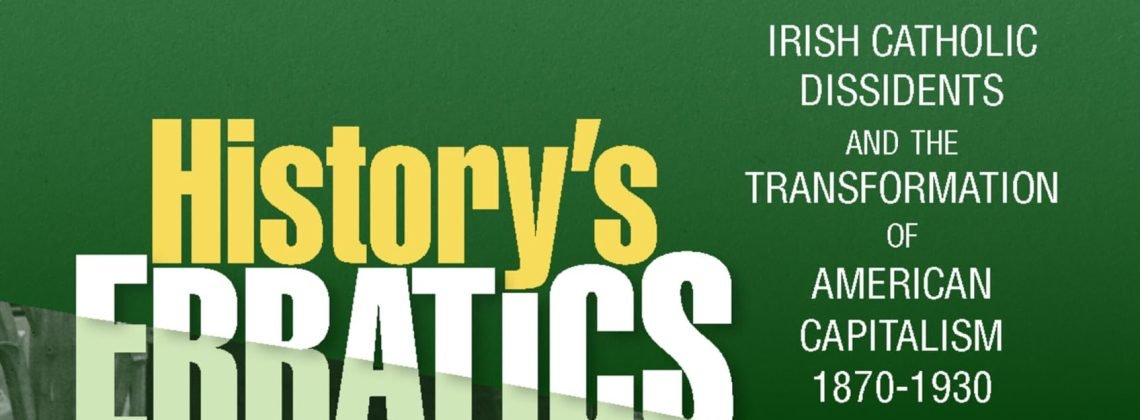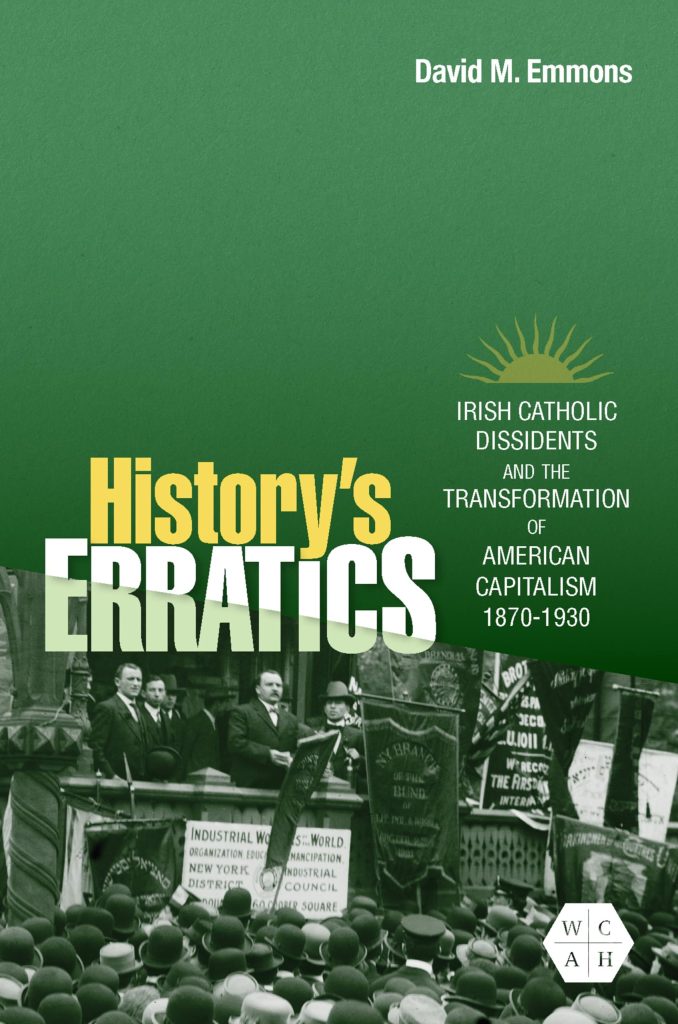

David M. Emmons is Professor Emeritus of History at the University of Montana. This interview is based on his new book, History’s Erratics: Irish Catholic Dissidents and the Transformation of American Capitalism, 1870-1930 (University of Illinois Press, 2024).
JF: What led you to write History’s Erratics?
DE: I wanted to complete my “trilogy” on Irish Catholics in America in the 19th and early 20th centuries and to make more explicit an argument only implied in my previous two volumes: Pre- if not antimodern Irish Catholics were a bad fit in modern Protestant America. They were an “oppositional” element, a cultural fifth column. Developing that point also allowed me to offer a new interpretation of the role of Catholic Irish in the working class during this third stage of America’s industrialization.
Petrologists use the term “glacial erratics” to describe rocks moved from their place of origin and scattered about by glaciers. These “erratics” were of a different place and of a different time; they were misfits in their new places. It was the perfect title metaphor. Irish Catholic workers in America were “history’s erratics,” made such by what had happened to them, real and imagined., including being “exiled” from Ireland and tumbled into the American working class. The fact that their erraticism was the antecedent of my own made it even more important that I finish my account of their “dissident years.”
JF: In 2 sentences, what is the argument of History’s Erratics?
DE: For most Irish Catholics in America, being out of time and out of place led only to a quiet defiance of values they barely comprehended; for some, however—far more than previously thought–it led to demands that the entire American capitalist system be transformed and softened–made more “Irish,” in other words. Both sets of erratics, the uncomprehending and the radical, were acting out of the traditional culture of Irish Catholicism; both were oppositional in the context of a capitalist and self-consciously Protestant America, 1870-1930.
JF: Why do we need History’s Erratics?
DE: We know what native Protestant Americans thought of immigrants; more specifically, we know what they thought of Irish Catholics. It’s long past time that we reverse the lens and learn something of what immigrants—Irish Catholics in this instance—thought of Protestant and capitalist America. That perspective should be applied to all immigrant groups, past and current. This seems particularly urgent when the purposeful ignorance of history, the re-mythologizing of America and the racism and xenophobia that accompanies it, have become prominent features of the right wing of the Republican Party.
JF: Why and when did you become an American historian?
DE: My B.A. was in Classics. For a variety of reasons, I switched to American history in graduate school. More to the point of this book, I became a historian of American immigration/ethnicity and labor when I stumbled upon a treasure of records from the Irish fraternal organizations in Butte, Montana.
JF: What is your next project?
DE: History’s Erratics concludes my “trilogy” on the Irish American working-class. It also concludes my career! There is room for another book on “how the Irish quit being erratics and learned to love America—and it them”—but I will happily leave that to someone else.
JF: Thanks, David!